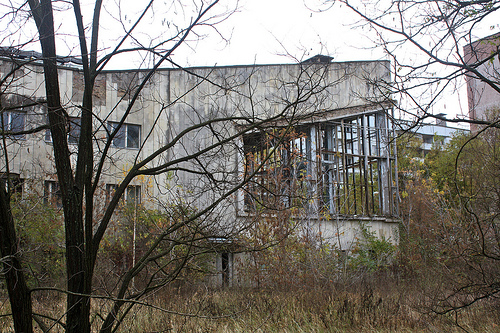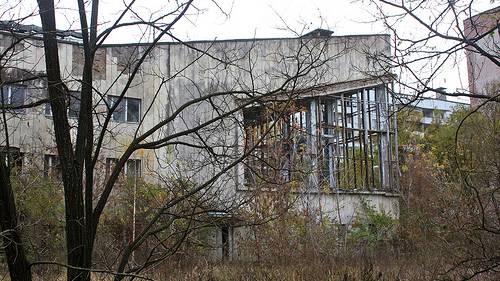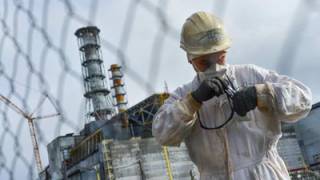Radioactive Fungus: Chernobyl Forests Not Decaying Properly

Scientists are finding that the ramifications of the Chernobyl event are father reaching than suspected. In our search for solutions in the Fukushima Daiichi Nuclear plant disaster, we must turn our gaze back to Chernobyl for answers.
The people have long fled, and the buildings are crumbling, but animals and plants still endure radiation exposure in the Chernobyl exclusion zones - even the very microbes in the soil are affected. A team of scientists have reported their findings in a new study that shows these radioactive hot spots are killing vital decomposers. The microbes and fungi don’t seem to be breaking down the forests, and this missing link in the cycle has unsettling implications for the ecosystem.
Smithsonian Magazine reports on the newly published study:
“We have conducted research in Chernobyl since 1991 and have noticed a significant accumulation of litter over time,” [they] write. Moreover, trees in the infamous Red Forest—an area where all of the pine trees turned a reddish color and then died shortly after the accident—did not seem to be decaying, even 15 to 20 years after the meltdown.
The scientists sound a warning that the mass of dried out wood and leaf litter which isn’t decomposing may one day lead to a forest fire which would be difficult to manage. Such a fire may redistribute radiation into the air to eventually fall somewhere else.
The Chernobyl event, now nearly 30 years past, clearly still affects us today. The danger didn’t stop when the cameras turned away. Hopefully what we learn from Chernobyl can help us with Fukushima.
Smithsonian.com:
According to a new study published in Oecologia, decomposers—organisms such as microbes, fungi and some types of insects that drive the process of decay—have also suffered from the contamination. These creatures are responsible for an essential component of any ecosystem: recycling organic matter back into the soil. Issues with such a basic-level process, the authors of the study think, could have compounding effects for the entire ecosystem.
[...]In the areas with no radiation, 70 to 90 percent of the leaves were gone after a year. But in places where more radiation was present, the leaves retained around 60 percent of their original weight. By comparing the mesh with the panty hose-lined bags, they found that insects play a significant role in getting rid of the leaves, but that the microbes and fungi played a much more important role. Because they had so many bags placed in so many different locations, they were able to statistically control for outside factors such as humidity, temperature and forest and soil type to make sure that there wasn’t anything besides radiation levels impacting the leaves’ decomposition.
Read more at: smithsonianmag.com
Image: Flicker/KyleTaylor






















